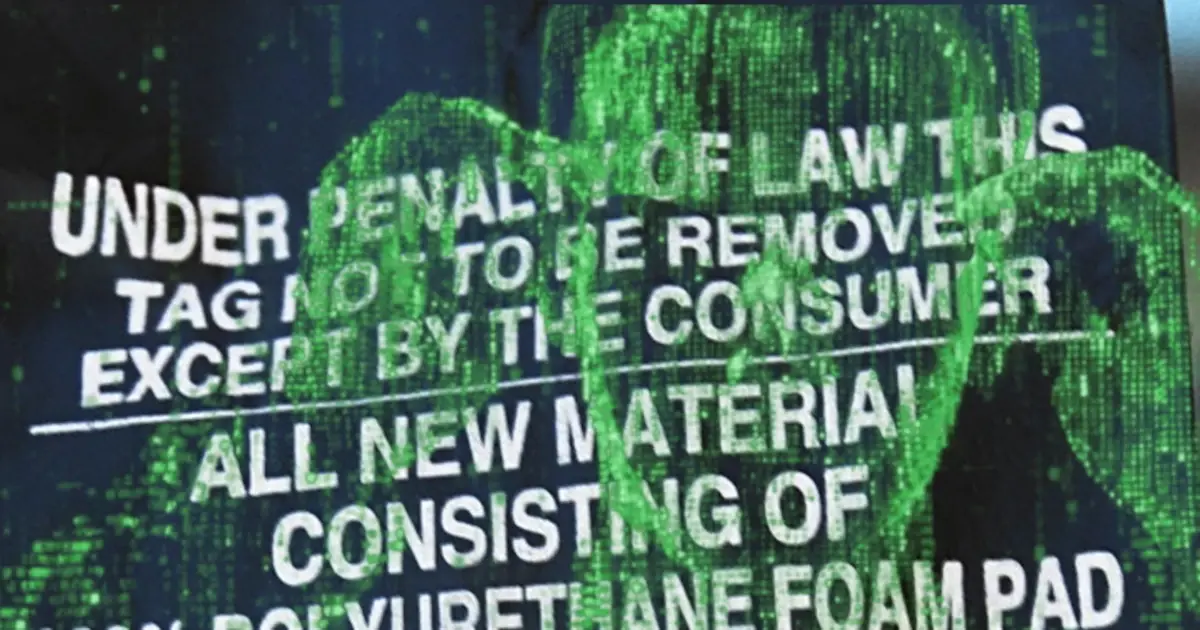Related Topics
FTC “Nixing The Fix” Report
Earlier this year the FTC released a report on the current status quo of repairing manufactured items. Stephen and Parker break down this report!
Let The Robots Do It
Is grinding out math problems just busy work? Is the current state of Math class curriculum hampering the real life deployment of engineering skills?
Don’t Worry About It
Right to Repair is going global and Stephen might have solved his injection molded component's void by tweaking the mold design.
Other Resources
Circuit Break Podcast
Webinars
Videos
Tour MacroFab's ITAR-Compliant Facility
April 7, 2021, Episode #271
- Right To Repair Dot Org
- The Right to Repair Electronics refers to government legislation that is intended to allow consumers the ability to repair and modify their own consumer electronic devices, where otherwise the manufacturer of such devices requires the consumer to use only their offered services.
- This already exists for Autos for the most part
- Motor Vehicle Owners’ Right to Repair Act
- Ending the “unfair monopoly” of car manufacturers maintaining control over repair information that could result in independent shops turning away car owners due to lack of information.
- This already exists for Autos for the most part
- IFIXIT Manifesto
- Movement:
- Major Players
- Apple
- Do you really own your cell phone?
- Withholding repair information
- Requiring that all repairs happen at designated service centers
- ISL9240 charging chip from renesas
- John Deere
- Requiring repairs be done with approved contractors
- Louis Rossmann of Rossmann Repair Group
- Go Fund Me
- 1.55M subscribers
- $317,000
- Direct Ballot Initiative in Mass
- Apple
- Major Players
- Impact?
- Designers at the companies?
- Who is held liable for not providing the right information?
- Documentation
- How “perfect” does it need to be?
- How much is enough?
- When can manufacturers say no?
- Suppliers
- Does every single part for your product need to be available off the shelf in singles all the time?
- Mouser/Digikey?
About the Hosts

Parker Dillmann
Parker is an Electrical Engineer with backgrounds in Embedded System Design and Digital Signal Processing. He got his start in 2005 by hacking Nintendo consoles into portable gaming units. The following year he designed and produced an Atari 2600 video mod to allow the Atari to display a crisp, RF fuzz free picture on newer TVs. Over a thousand Atari video mods where produced by Parker from 2006 to 2011 and the mod is still made by other enthusiasts in the Atari community.
In 2006, Parker enrolled at The University of Texas at Austin as a Petroleum Engineer. After realizing electronics was his passion he switched majors in 2007 to Electrical and Computer Engineering. Following his previous background in making the Atari 2600 video mod, Parker decided to take more board layout classes and circuit design classes. Other areas of study include robotics, microcontroller theory and design, FPGA development with VHDL and Verilog, and image and signal processing with DSPs. In 2010, Parker won a Ti sponsored Launchpad programming and design contest that was held by the IEEE CS chapter at the University. Parker graduated with a BS in Electrical and Computer Engineering in the Spring of 2012.
In the Summer of 2012, Parker was hired on as an Electrical Engineer at Dynamic Perception to design and prototype new electronic products. Here, Parker learned about full product development cycles and honed his board layout skills. Seeing the difficulties in managing operations and FCC/CE compliance testing, Parker thought there had to be a better way for small electronic companies to get their product out in customer's hands.
Parker also runs the blog, longhornengineer.com, where he posts his personal projects, technical guides, and appnotes about board layout design and components.

Stephen Kraig
Stephen Kraig is a component engineer working in the aerospace industry. He has applied his electrical engineering knowledge in a variety of contexts previously, including oil and gas, contract manufacturing, audio electronic repair, and synthesizer design. A graduate of Texas A&M, Stephen has lived his adult life in the Houston, TX, and Denver, CO, areas.
Stephen has never said no to a project. From building guitar amps (starting when he was 17) to designing and building his own CNC table to fine-tuning the mineral composition of the water he uses to brew beer, he thrives on testing, experimentation, and problem-solving. Tune into the podcast to learn more about the wacky stuff Stephen gets up to.
Special thanks to whixr over at Tymkrs for the intro and outro!
Related Podcasts

The Digital Mattress
Hyron and Zapp from the AND!XOR group joins the podcast this week to continue the discussion on the Right to Repair and Non Fungible Tokens.

Let The Robots Do It
Is grinding out math problems just busy work? Is the current state of Math class curriculum hampering the real life deployment of engineering skills?

Don’t Worry About It
Right to Repair is going global and Stephen might have solved his injection molded component's void by tweaking the mold design.

FTC “Nixing The Fix” Report
Earlier this year the FTC released a report on the current status quo of repairing manufactured items. Stephen and Parker break down this report!
About MacroFab
MacroFab offers comprehensive manufacturing solutions, from your smallest prototyping orders to your largest production needs. Our factory network locations are strategically located across North America, ensuring that we have the flexibility to provide capacity when and where you need it most.
Experience the future of EMS manufacturing with our state-of-the-art technology platform and cutting-edge digital supply chain solutions. At MacroFab, we ensure that your electronics are produced faster, more efficiently, and with fewer logistic problems than ever before.
Take advantage of AI-enabled sourcing opportunities and employ expert teams who are connected through a user-friendly technology platform. Discover how streamlined electronics manufacturing can benefit your business by contacting us today.